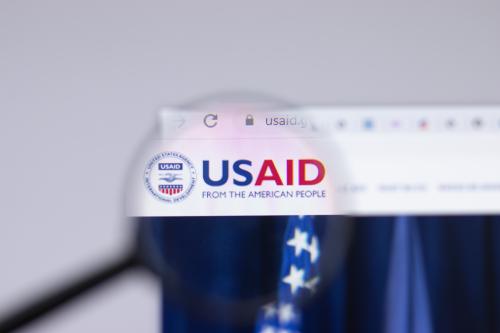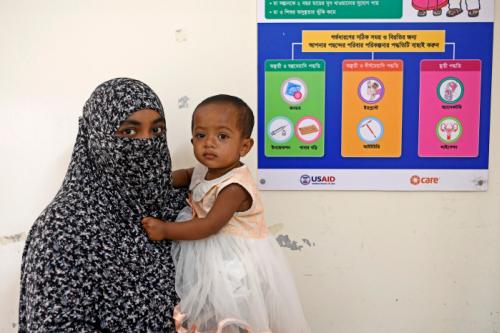The trigger for protests that erupted two weeks ago in cities throughout Brazil was a hike in bus fares. The price rise had already been delayed for six months and further postponement could have been achieved peacefully. In 11 cities, the increase has now been lowered, including in São Paulo where the mayor remains uncertain how to make up the lost revenue. Nevertheless, protest and vandalism have spread to more cities. How do we explain the violence that saw a woman pepper sprayed at close quarters in Rio de Janeiro and the invasion of the National Congress Building in Brasilia?
Political corruption has become a major source of grievance. Despite the fact that President Dilma Rousseff has been the toughest president on corruption in recent memory, bribery and fraud remain pervasive. Despite firing government ministers after they were found guilty of vote buying in a scam known as Mensalão, citizens remain disenchanted with their political leaders; all of whom are viewed as corrupt. With presidential and congressional elections looming in October 2014, Rousseff has to show that she stands above the protest — thus her remark during a June 19 televised address that “Brazil woke up stronger today” in demonstrating its democratic freedoms.
That remark may remind Brazilians of Rousseff’s courage as a young protestor against the military regimes in the late 1960s. But with increasing injuries to protestors and policemen, it is doubtful that Brazil’s emerging lower-middle class will support the continued use of violence by both sides. Rousseff, whose victory in next year’s elections was considered inevitable, may now find herself in a tight race against Governor Eduardo Campos from Pernambuco (member of the Brazilian Socialist Party, or PSB) and Marina Silva, who started the environmental Sustainability Network Party earlier this year.
Another grievance: Economic woes have impacted Brazil’s growing middle class. Inflation is growing as a result of pressure on the real and the inflow of foreign investment funds. Over the last 11 months, the cost of rent, food and basic household goods in Rio de Janeiro has risen by 20 percent, bringing the official inflation rate to 6.5 percent. Memories of 1,000 percent annual inflation in the late 1980s make urban Brazilians anxious about the rapid rise in prices. In response, Rousseff has introduced sweeping reforms to address stagflation, but most of these reforms will have an impact over the longer term. The tax cut and reduction in the cost of hiring new employees have had a more immediate impact, but expectations of continued prosperity have ended. According to the Financial Times, output expanded by only 1 percent in 2012 and growth at 0.6 percent for the 1st quarter of 2013 is fragile.
While the economy takes its toll, Brazilians learned about the sizable funds spent on construction for the 2014 World Cup and 2016 Olympic games as they continue to suffer from inadequate social services. If the government can raise funds for new stadiums, gymnasiums and residential quarters for the games, why can’t they borrow funds for healthcare, housing and education? The Fédération Internationale de Football Association (FIFA) sets the standard for World Cup football stadiums, provoking one placard to read, “We want schools built to FIFA standards.”
Related to the games is the cost of tickets. Brazil is increasingly a middle-class society with high expectations and increased mobility. They expect to buy tickets, participate in this national feast and find the well paying jobs that were promised with the games. The government succeeded in getting FIFA to agree to discounted seats for students, the handicapped and the elderly for the qualifying games in the 2013 Confederation Cup held June 14-30. However, they remain too expensive for the great majority of Brazilian sport fans. They are convinced that they will be unable to afford the tickets for the 2014 World Cup, which go on sale this August.
The Confederation Cup matches represent trials for next year’s games; in other words they are a dress rehearsal for the organizers of the games in 2014. If the Brazilian organizer, Match Services AG, can demonstrate efficiency and economic ticket sales, we can expect a return to the peaceful protests which have characterized Brazilian opposition in the past. However, heavy handedness by the police and the perception of corruption in the sale of tickets will stoke up the furor and result in prolonged violent demonstrations.
The multiple issues that underlie the current dissent are complex and cannot be solved immediately. They require that President Rousseff modulate her economic policy and restrain police from the overuse of force in order to achieve her, and others, desire to strengthen Brazilian democracy.
The Brookings Institution is committed to quality, independence, and impact.
We are supported by a diverse array of funders. In line with our values and policies, each Brookings publication represents the sole views of its author(s).



Commentary
Brazil’s Protests, Prices, Politics and Futbol
June 21, 2013